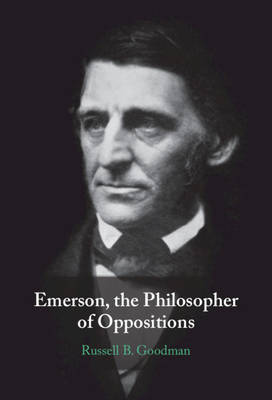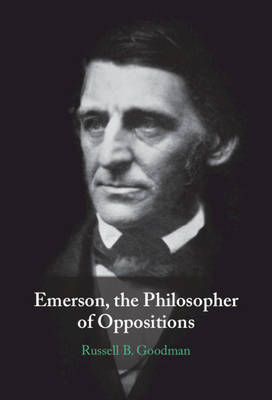
Bedankt voor het vertrouwen het afgelopen jaar! Om jou te bedanken bieden we GRATIS verzending (in België) aan op alles gedurende de hele maand januari.
- Afhalen na 1 uur in een winkel met voorraad
- In januari gratis thuislevering in België
- Ruim aanbod met 7 miljoen producten
Bedankt voor het vertrouwen het afgelopen jaar! Om jou te bedanken bieden we GRATIS verzending (in België) aan op alles gedurende de hele maand januari.
- Afhalen na 1 uur in een winkel met voorraad
- In januari gratis thuislevering in België
- Ruim aanbod met 7 miljoen producten
Zoeken
Omschrijving
Ralph Waldo Emerson developed a metaphysics of process, an epistemology of moods, and an 'existentialist' ethics of self-improvement, drawing on sources including Neoplatonism, Kantianism, Hinduism, and the skepticism of Montaigne. In this book, Russell B. Goodman demonstrates how Emerson's essays embody oppositions - one and many, fixed and flowing, nominalism and realism - and argues, in tracing Emerson's main positions, that we miss the living nature of his philosophy unless we take account of the motions and patterns of his essays and the ways in which instability, spontaneity, and inconsistency are dramatized within them. Goodman presents Emerson as a philosopher in conversation with Plato, Kant, Nietzsche, William James, Wittgenstein, and Cavell. He finds a variety of skepticisms in Emerson's work - about friendship, language, freedom, and the world's existence - but also an acknowledgement of skepticism as a 'wise' form of life.
Specificaties
Betrokkenen
- Auteur(s):
- Uitgeverij:
Inhoud
- Aantal bladzijden:
- 240
- Taal:
- Engels
Eigenschappen
- Productcode (EAN):
- 9781009604550
- Verschijningsdatum:
- 31/12/2025
- Uitvoering:
- Hardcover
- Formaat:
- Genaaid

Alleen bij Standaard Boekhandel
+ 256 punten op je klantenkaart van Standaard Boekhandel
Beoordelingen
We publiceren alleen reviews die voldoen aan de voorwaarden voor reviews. Bekijk onze voorwaarden voor reviews.









